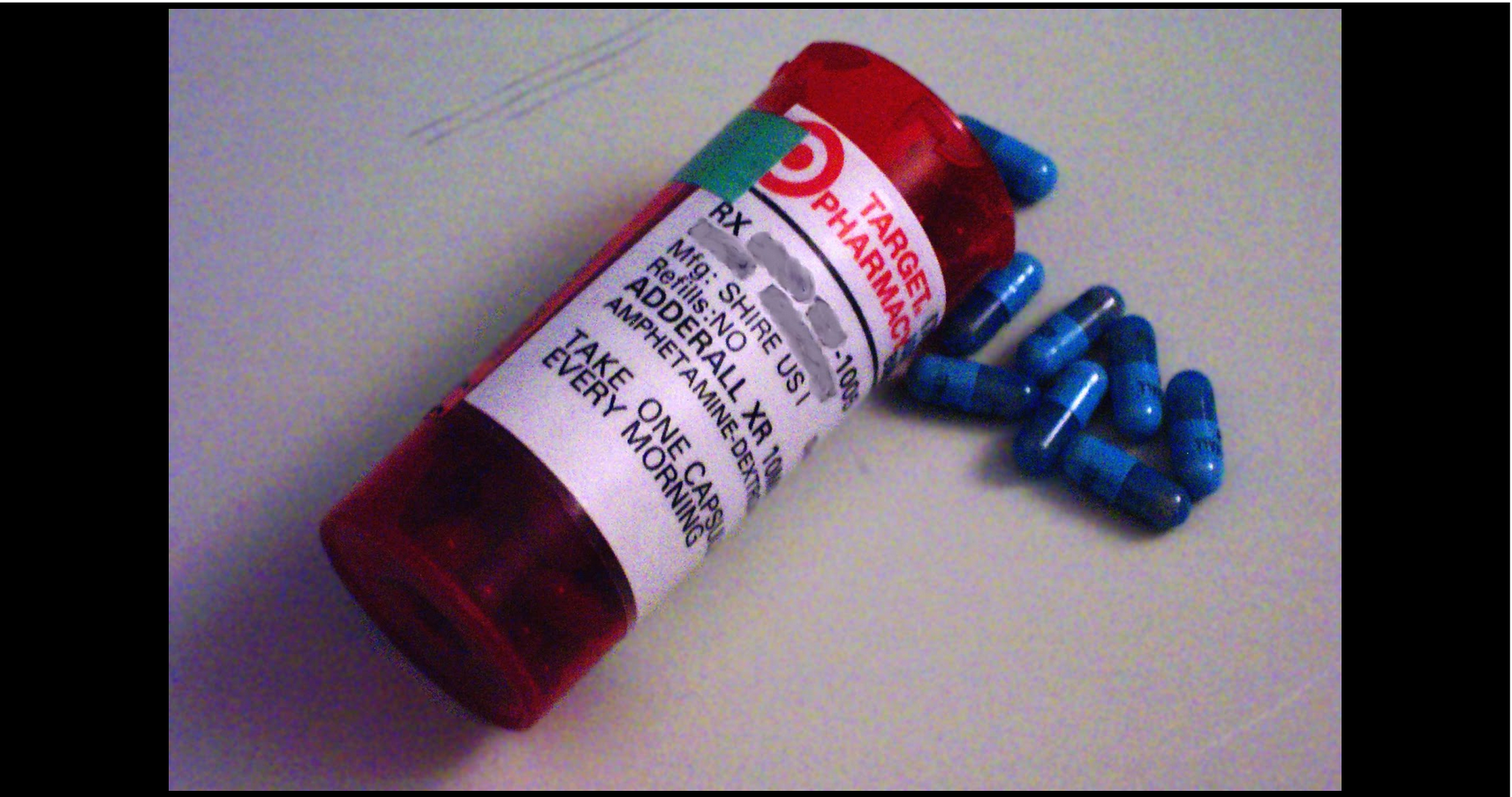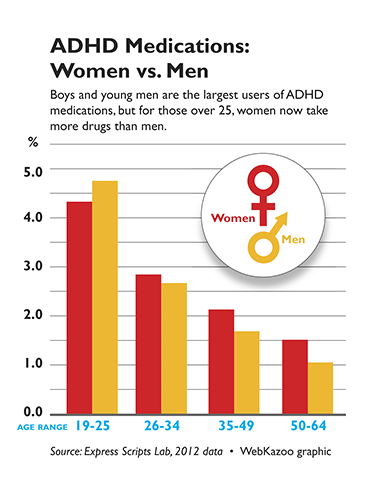Why ADHD Diagnosis is Unfair Towards Women

By:
Attention-deficit/hyperactivity disorder (ADHD) is the most frequently diagnosed mental disorder among children in the U.S., effecting a staggering 11 percent of school-aged children, according to a 2013 CDC report. While commonly prescribed stimulants like Adderall and Ritalin and ADHD misdiagnosis have garnered a fair of media attention, until recently, there has been little research on how gender factors into ADHD diagnosis and treatment.
The ADHD phenomenon is typically equated with hyperactive young boys, but a recent study published in The Journal of Clinical Psychiatry suggests that many adult women suffer from the disorder and have not been properly diagnosed.

ADHD looks different in women.
Boys are most often diagnosed with ADHD before the age of seven due to energetic, fidgety, and distracting behavior in the classroom, but recent studies show that female symptoms often are manifest in disorganization and inattentiveness rather than hyperactivity. Women suffering from undiagnosed ADHD often experience self-esteem issues, eating disorders, depression, and engage in emotionally abusive relationships.
In 2013, the DSM-5 revised the ADHD diagnostic criteria to account for the differences between male and female symptoms, but popular opinion continues lag behind, considering the disorder in terms of outdated studies conducted solely on young males.
 Pixabay - pixabay.com
Pixabay - pixabay.com
“These studies were based on really hyperactive young white boys who were taken to clinics,” Dr. Ellen Littman, author of "Understanding Girls with ADHD" told The Atlantic. “The diagnostic criteria were developed based on those studies. As a result, those criteria over-represent the symptoms you see in young boys, making it difficult for girls to be diagnosed unless they behave like hyperactive boys.”
According to a study published in the Journal of Consulting and Clinical Psychology, girls with ADHD are particularly prone to to self-injury and suicide during teenage years. These symptoms aren't expressed in medical literature on boys suffering from the disorder, so the female ADHD experience has long been misunderstood among the medical community. In fact, it's quite different.
Symptoms appear later in girls than boys.
Boys don't just exhibit different ADHD symptoms, they also experience them earlier than girls. While boys' ADHD symptoms often wane during puberty, women tend to experience heightened symptoms during teenage and early adult years due to increased estrogen production, and are even at between four and five times greater risk for suicide than girls without ADHD.
"By high school, I had fully internalized the fact that I was a screwup and began acting the part with teenage gusto," Rae Jacobson recalls on The Cut. "My whole life, I was not once early — not on homework, not on planning, not on anything. If I was on time, it appeared as though I’d been recently airlifted from a desert island."
Between 2008 and 2012, ADHD prescriptions increased 85 percent among women between ages 24 and 26. Still, in the popular imagination, it can be hard to extricate the idea that ADHD is over diagnosed from research revealing that in women, it may be quite the opposite.
 C-Hit.Org - c-hit.org
C-Hit.Org - c-hit.org
“I think we have a lost generation of women who are diagnosed with ADHD later in life, who have had to manage the condition on their own and deal with it on their own for the majority of their lives,” Michelle Frank, a clinical psychologist and ADHD expert, told Quartz.
Sexist stereotypes contribute to ADHD going un- or misdiagnosed in women.
While shifts in diagnostic criteria and scant medical research have shaped how often women suffering from ADHD fly under the radar, sexist stereotypes and the stigma of mental health treatment are also contributing factors.
"Then there’s the sexist skepticism: She’s just a ditz," Jacobson reflects.
She describes her struggle with undiagnosed ADHD as a distinctively gendered one, shaped both by stereotypical female social problems and the expectations that come along with being a girl.
Beyond my failures at school and work, not being able to focus made me feel like I’d failed at being a girl. Having ADHD is challenging regardless of gender but in a world predisposed to undermining women, not having your shit together can feel like a dereliction of feminine duty.
Because women are more likely to internalize their symptoms as self-criticism rather than exhibit outbursts of hyperactivity, they often grow up believing their ADHD symptoms mean something is wrong with them or that they simply aren't trying hard enough.
“For a long time, these girls see their trouble prioritizing, organizing, coordinating, and paying attention as character flaws. No one told them it's neurobiological,” author and therapist Sari Solden told The Atlantic.
Because Adderall and other ADHD are commonly abused as weight loss supplements, study aids, and recreational drugs, the stigma of medication itself can make women hesitant to seek help, particularly when their symptoms don't align with ADHD stereotypes of poor academic performance.
 Wikimedia - wikimedia.org
Wikimedia - wikimedia.org
Author Maria Yagoda wrote that her peers' reactions to her diagnosis were largely skeptical and dismissive.
“Of course you don’t have ADHD. You’re smart,” a friend told me, definitively, before switching to the far more compelling topic: medication. “So are you going to take Adderall and become super skinny?” “Are you going to sell it?” “Are you going to snort it?”
While revisions in diagnostic criteria and prescription statistics paint a relatively hopeful picture for female ADHD sufferers, it is equally important that the general population become aware of their experiences and accept them as medically legitimate.
"Medication is certainly not a cure-all, but when paired with the awareness granted by a diagnosis, it has rendered my symptoms more bearable—less unknown, less shameful." Yagoda writes, "I have discovered the virtues of a little self-love, a lot of self-forgiveness, and even using different drawers to store different things."
